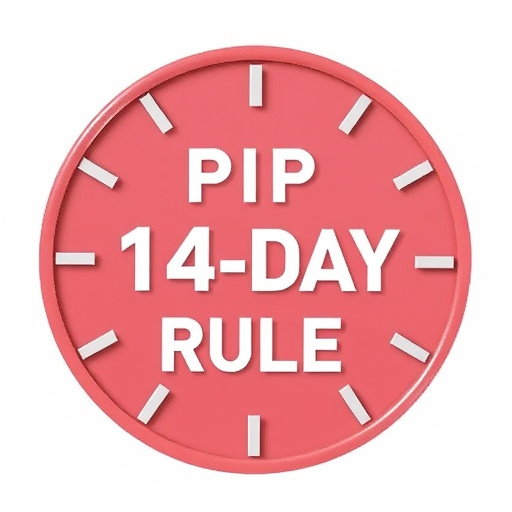The 14-day rule for Personal Injury Protection (PIP) insurance is a crucial policy requirement dictating that insured individuals seek medical attention within two weeks of an accident. This time-sensitive mandate facilitates prompt treatment, positively impacting recovery and preventing potential health issues. Non-compliance can result in claim delays or denials, as insurers expect timely documentation and assessment. To navigate this rule effectively, policyholders should gather essential documents, communicate openly with healthcare providers and insurance agents, set reminders, keep detailed records, understand their policy, and proactively update insurers on patient progress to ensure seamless claims processing and access to necessary healthcare.
In today’s complex healthcare landscape, understanding your insurance coverage is paramount. This article delves into the intricacies of PIP insurance and its crucial timeframe limits, focusing on the significant 14-day rule. We explore what happens when deadlines are missed and provide strategic insights to expedite claims. Furthermore, we address common challenges and best practices for effective communication with insurers, empowering you to navigate the process smoothly. Key terms, such as PIP insurance and the 14-day rule, are demystified to ensure informed decision-making.
- Understanding PIP Insurance and its Timeframe Limits
- The Significance of the 14-Day Rule in PIP Claims
- What Happens if You Don't Comply with the Timeframe?
- Strategies to Expedite Your Insurance Claim Process
- Common Challenges and How to Overcome Them
- Best Practices for Effective Communication with Insurers
Understanding PIP Insurance and its Timeframe Limits

PIP insurance, or Personal Injury Protection, is a crucial component of auto insurance policies in many states. It provides coverage for medical expenses and other associated costs for insured individuals involved in car accidents, regardless of who’s at fault. One of the key aspects of PIP insurance is its 14-day rule regarding timeframe limits. This means that policyholders must initiate treatment within 14 days of the accident to be eligible for benefits under their PIP coverage.
The 14-day rule is in place to ensure prompt and timely medical attention for injured parties. It encourages insured individuals to seek necessary care without delay, which can significantly impact their overall recovery process and prevent potential complications down the line. Understanding this timeframe limit is essential for policyholders to maximize their PIP benefits and navigate any legal requirements associated with personal injury claims effectively.
The Significance of the 14-Day Rule in PIP Claims

In Personal Injury Protection (PIP) insurance claims, the 14-day rule is a crucial timeframe that significantly impacts the process and outcomes. This rule dictates that an insured individual must seek medical treatment within 14 days of sustaining an injury to be eligible for PIP benefits related to that incident. Adhering to this timeline is essential as it ensures that the insurance company can verify the legitimacy of the claim, including the necessity of medical care.
The 14-day rule serves as a protective measure for both policyholders and insurers. For insureds, it reinforces the importance of promptly addressing health concerns related to an injury. Prompt treatment not only facilitates a faster recovery but also provides solid documentation of the injury’s severity and its connection to the incident in question. For insurance providers, this rule aids in preventing fraudulent claims by establishing a clear window for initial medical engagement after an accident.
What Happens if You Don't Comply with the Timeframe?

If you fail to comply with the required insurance timeframe limits, such as the 14-day rule for PIP (Personal Injury Protection) insurance, it can have several consequences. Insurers typically expect prompt reporting and treatment of injuries to ensure accurate claims assessment and processing. Non-compliance may lead to delays in claim approval or even denial. This is because insurers often consider timely treatment a key indicator of the legitimacy and severity of an injury.
Moreover, non-adherence to these timeframes can impact your ability to receive necessary medical care. For instance, some healthcare providers might require prior authorization or referral from your insurance company, which could be denied if you miss the specified timeframe. This may result in delays in accessing critical treatment, potentially exacerbating your condition and affecting your overall recovery outcomes.
Strategies to Expedite Your Insurance Claim Process

When dealing with injuries and medical treatments, time is of the essence, especially when it comes to insurance claims. Many policies have specific timeframe limits, like the 14-day rule for PIP (Personal Injury Protection) insurance, which requires you to notify your insurer about your claim within this period. To expedite this process, it’s beneficial to gather all necessary documentation promptly. This includes medical reports, bills, and any other evidence supporting your treatment and expenses. Digital organization can be a game-changer; store these documents online or in a easily accessible folder to quickly pull them when needed.
Additionally, direct communication with your healthcare providers is crucial. Instruct them to facilitate swift claim submission by providing pre-authenticated forms or directly contacting your insurance company on your behalf. Keeping open lines of communication with both your medical team and insurance agent can help navigate the process more efficiently, ensuring your claim doesn’t get delayed due to missing information or paperwork.
Common Challenges and How to Overcome Them

Many individuals face challenges when it comes to navigating treatment within required insurance timeframe limits, particularly with regulations like the PIP (Personal Injury Protection) insurance 14-day rule. One common hurdle is understanding the precise timing for seeking medical attention. The 14-day rule requires individuals to initiate medical treatment within two weeks of a covered incident; failure to do so can result in a potential claim denial. Delving into this process, patients often encounter communication barriers or lack awareness of their policy’s specifics, leading to delays.
To overcome these challenges, proactive steps are essential. Patients should familiarize themselves with their insurance policy, noting the timeframe requirements and what constitutes covered treatment. Open communication with healthcare providers about billing and coverage is crucial; many practices have experience navigating such regulations and can offer guidance. Additionally, setting reminders and keeping detailed records of medical visits can help ensure compliance with these limits.
Best Practices for Effective Communication with Insurers

Effective communication with insurers is paramount for navigating treatment within required timeframes, especially when dealing with PIP (Personal Injury Protection) insurance and its 14-day rule. A key best practice is clear and concise documentation. Healthcare providers should meticulously record all interactions, diagnoses, and proposed treatments, adhering to the specific guidelines set by the insurer. This includes detailing the patient’s condition upon initial contact, the expected duration of treatment, and any anticipated delays.
Another effective strategy is proactive communication. Regularly update the insurance company about the patient’s progress, reminding them of the 14-day rule and its implications for approval and coverage. This open dialogue ensures that everyone involved stays informed, reducing misunderstandings and potential delays in treatment authorization. Additionally, familiarizing oneself with the insurer’s procedures and requirements can streamline the process, ensuring compliance and minimizing frustration.














